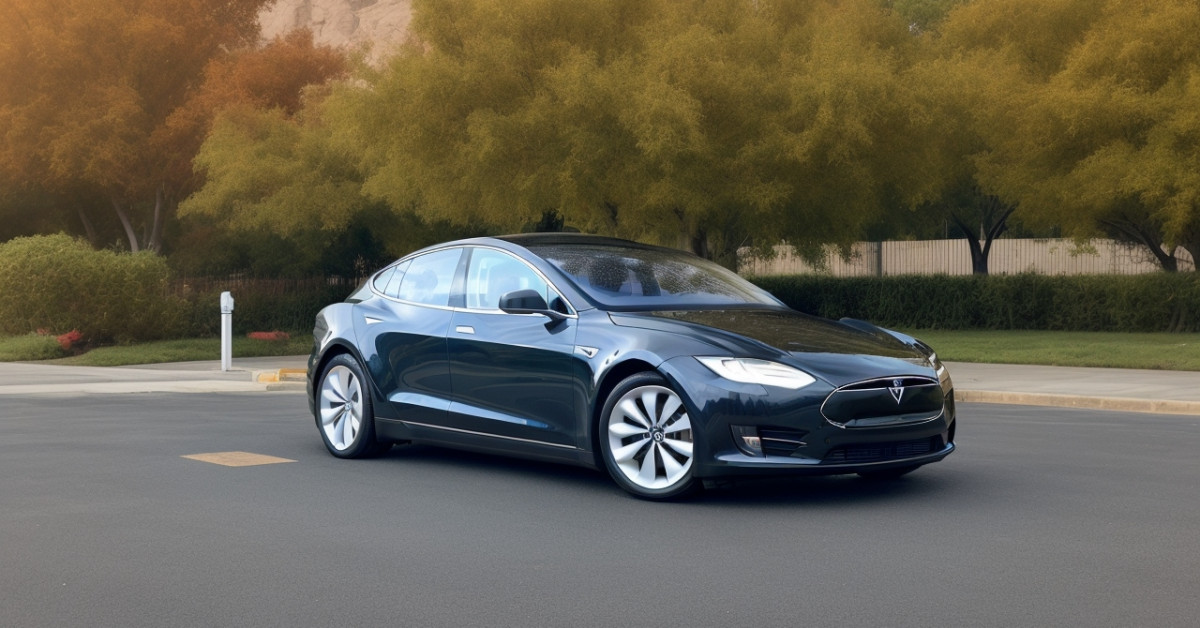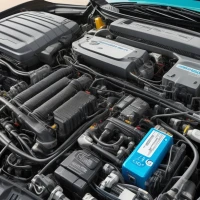Do Teslas Need Oil? Uncovering the Truth Behind Electric Car Maintenance. You’ve seen the sleek, modern Tesla gliding silently down the highway, a marvel of cutting-edge technology. But have you ever wondered about the hidden secrets of its maintenance? Is oil still a necessity, or does the electric revolution rewrite the rulebook? Dive into our exploration where we peel back the layers and reveal what every future Tesla owner needs to know. Get ready to be electrified by surprising insights and essential tips for keeping your high-tech ride in top shape. Click to uncover the truth about what it really takes to maintain a Tesla!
The Main Reason Why Tesla Doesn’t Need Oil
Electric vehicles, particularly Tesla, represent a substantial shift in automotive technology, and many people question traditional car maintenance needs, including the necessity for oil. The main reason why Tesla doesn’t need oil lies in its electric powertrain. Unlike conventional internal combustion engines, Tesla vehicles are powered by electric motors, which do not require engine oil for lubrication.
Electric motors function distinctly from gasoline engines, relying on electrical energy stored in batteries rather than fuel combustion. This fundamental difference eliminates the need for engine oil, which is primarily used to reduce friction and wear within the many moving parts of a traditional engine. Tesla’s electric motors have far fewer moving components, which minimizes the need for such lubrication.
Additionally, Tesla cars utilize a regenerative braking system, which reduces wear on brake components compared to traditional braking systems. Although some parts, like brake fluid and windshield washer fluid, still need regular maintenance, the absence of oil changes marks a significant reduction in ongoing upkeep.
In essence, the main reason why Tesla doesn’t need oil is due to its revolutionary electric motor design, which not only simplifies maintenance but also contributes to a cleaner and more sustainable driving experience. This innovation is fundamentally transforming how we think about car care and highlights the numerous advantages of electric vehicles.
Which Tesla Parts Need Oil?
Electric vehicles (EVs), especially Teslas, have revolutionized the automotive industry by offering a sustainable and efficient alternative to traditional gasoline-powered cars. One major curiosity for many potential Tesla owners is: do Teslas need oil? The straightforward answer is that Tesla cars do not require engine oil changes, as they operate with electric motors instead of internal combustion engines. However, it’s crucial to delve deeper into which Tesla parts need oil or other types of lubricants to maintain optimal performance.
While the electric motor in a Tesla eliminates the need for conventional engine oil, certain components, such as gear reduction boxes (similar to transmissions), may still require specific lubricants. These lubricants ensure smooth operation and longevity of the parts. Additionally, components like the power steering and cooling systems use specialized fluids designed for electric vehicles. Understanding which Tesla parts need oil or fluids can aid in the proper maintenance of the vehicle, ensuring it runs efficiently over time.
Routine check-ups and following Tesla’s maintenance guidelines maximize the lifespan of these advanced vehicles. Thus, while the absence of traditional engine oil is a significant advantage, it is essential to pay attention to which Tesla parts need oil or equivalent maintenance to keep the vehicle in top condition.
Do Teslas Need Maintenance?
While traditional gasoline vehicles heavily rely on oil for lubrication and functioning, Teslas deviate from this norm due to their electric nature. Electric cars, like Tesla, operate without internal combustion engines, which means they don’t require engine oil. However, this leads to a new question: Do Teslas Need Maintenance?
Indeed, electric vehicles still need regular check-ups, but the maintenance routine is fundamentally different from that of conventional cars. For example, Teslas require periodic software updates to ensure optimal performance and security. Additionally, their brake systems benefit from regenerative braking, significantly reducing wear and tear. Nonetheless, inspecting brake pads remains advisable.
The battery and cooling systems in a Tesla are critical and should be checked periodically. Tesla recommends scheduled servicing to maintain these components in peak condition. Filters, such as the cabin air filter and the high-efficiency particulate air (HEPA) filter, need replacement as part of routine maintenance. Tire rotations are also essential to guarantee even wear, contributing to a smoother ride.
Therefore, while Teslas don't consume oil, maintenance remains crucial for longevity and optimal performance. The key takeaway is that the nature of the required maintenance evolves, allowing Tesla owners to enjoy reduced hassle and lower costs in contrast to traditional vehicle upkeep.
Do Teslas Require Yearly Maintenance?
Tesla vehicles have revolutionized the automotive world with their all-electric powertrains, leading many to ask, “Do Teslas need oil?” The answer is no, as Teslas operate without traditional internal combustion engines that require oil for lubrication. Instead, electric motors use electricity to turn the wheels, eliminating the need for oil changes entirely. This innovation in vehicle mechanics significantly reduces the amount of routine maintenance needed compared to gasoline-powered cars.
However, a common query among potential Tesla owners is, “Do Teslas require yearly maintenance?” While Teslas do not demand the same upkeep as conventional vehicles, they still benefit from some periodic checks to ensure optimal performance and longevity. Key areas to focus on include tire rotations, brake fluid checks, and battery health assessments. Tesla vehicles are equipped with advanced diagnostic systems that can alert owners when service is needed, making maintenance more intuitive and streamlined.
The all-electric design of Teslas simplifies maintenance but doesn’t eliminate it completely. Electric vehicle owners can enjoy the convenience of fewer routine services, which translates to lower long-term costs and reduced environmental impact. As EV technology continues to evolve, Tesla remains at the forefront, proving that innovative design and efficient maintenance can coexist seamlessly. Whether contemplating ownership or already a proud Tesla driver, understanding these maintenance nuances is essential for maximizing the electric experience.
Maintaining Your Tesla Vehicle
Electric vehicles like Teslas have revolutionized the automotive industry with their sleek designs and advanced technology. A common question that arises is: Do Teslas need oil? The short answer is no. Traditional internal combustion engines rely on oil for lubrication, cooling, and cleaning, but Tesla vehicles use electric motors, eliminating the need for oil changes. This innovation significantly reduces routine maintenance requirements.
Maintaining your Tesla vehicle involves a different set of tasks compared to conventional cars. Since they lack an engine that requires oil, there are fewer fluids to worry about. However, other maintenance aspects should not be neglected. Regularly checking the brake system, tires, and battery health is crucial to ensure your Tesla operates efficiently. The brake pads on electric vehicles typically last longer due to regenerative braking, but they still require periodic inspection.
Software updates are another essential part of maintaining your Tesla vehicle. These updates can enhance performance, improve safety features, and add new functionality. Tesla’s over-the-air update system makes it convenient for owners to keep their vehicles up-to-date without visiting a service center.
In conclusion, while Teslas do not require oil, they still need careful attention to other maintenance practices. By focusing on these aspects, you can ensure your vehicle remains in optimal condition for years to come.
Frequently Asked Questions
When it comes to electric car maintenance, a common topic surrounded by frequently asked questions is whether Teslas need oil. Unlike traditional internal combustion engine vehicles, Teslas do not require engine oil changes. This is because electric vehicles (EVs) use electric motors instead of gas-powered engines, eliminating the need for engine oil. The simplicity of electric motors reduces the number of moving parts, meaning less maintenance overall.
Tesla owners often have questions about what maintenance their vehicles do require. While they don’t need oil changes, Teslas still need other types of regular upkeep, such as tire rotations, brake checks, and fluid top-offs for the windshield wipers and air conditioning. Additionally, the battery, a crucial component of any EV, may require periodic checks to ensure its optimal performance and longevity.
Another frequently asked question revolves around the longevity of Tesla batteries. Thanks to ongoing developments in battery technology, Tesla vehicles are designed with long-lasting batteries that generally perform well over many years and miles. Software updates and Tesla’s advanced diagnostics help to ensure that any potential issues are identified early.
In summary, while Teslas do not need oil, there are other maintenance tasks essential for the longevity and efficient performance of these innovative electric vehicles. Understanding these requirements can help Tesla owners keep their cars in top shape.
Used for sale near me
Tesla vehicles represent the future of automotive technology, operating with electric motors rather than traditional internal combustion engines. Consequently, a common question arises: Do Teslas need oil? Unlike conventional vehicles, Teslas do not require engine oil because their electric motors are lubricated in a fundamentally different manner. This shift eliminates the need for regular oil changes, significantly reducing the maintenance burden.
However, there are still essential maintenance aspects to consider for Tesla owners. For example, tire rotations, brake fluid checks, and occasional software updates are necessary to ensure optimal performance. When shopping for a Tesla vehicle, it’s important to remember that used Teslas are often available for sale near me or in other locations. These used models still benefit from the reduced maintenance costs associated with electric vehicles, making them an attractive option for eco-conscious and budget-savvy consumers.
By opting for a Tesla, either new or used, you contribute to a greener future while enjoying the convenience of simplified car maintenance. Whether you’re interested in the latest model or seeking a used Tesla for sale near me, you’ll be investing in a vehicle that embodies innovation and sustainability. Ultimately, Tesla ownership offers a unique blend of cutting-edge technology and hassle-free maintenance.










